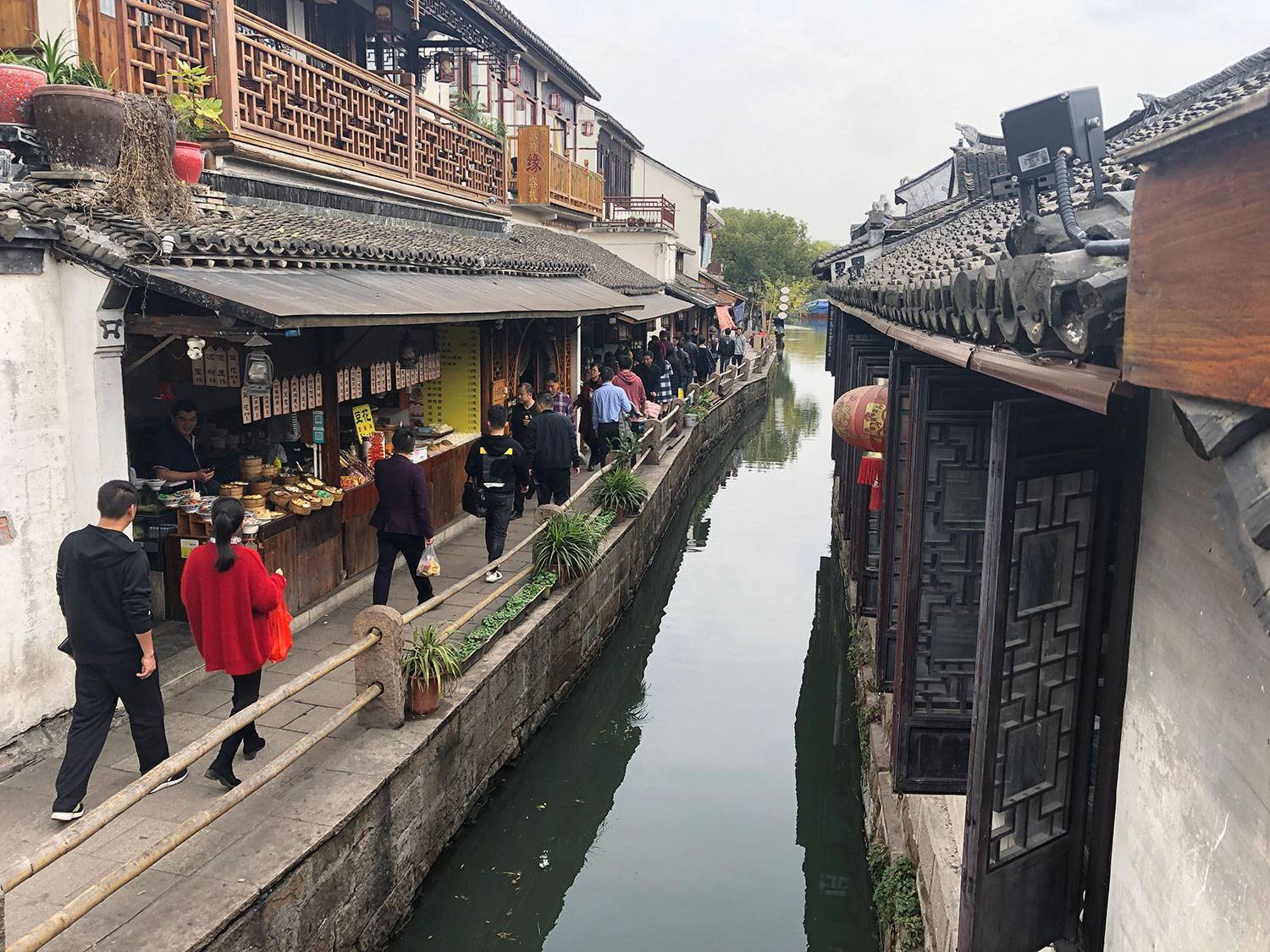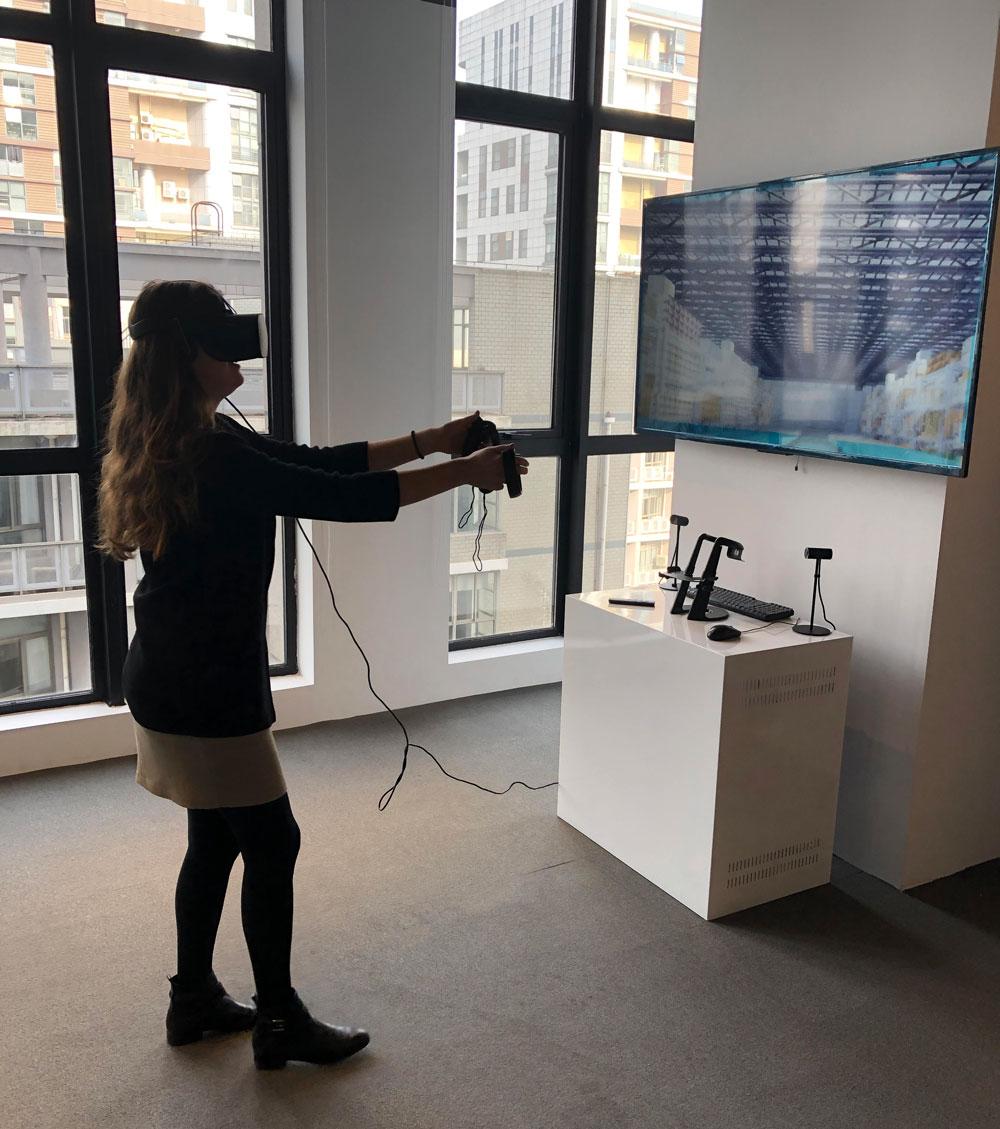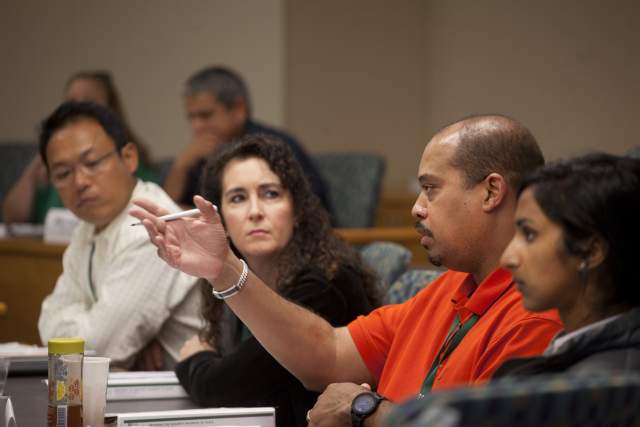Tuck Students Get Inside View of Tech Industry in China
The Center for Digital Strategies at Tuck organized a small group trek to Shanghai.

The students visited a diverse array of companies including Baozun, which provides turn-key e-commerce services to brands in China and NIO, an electric vehicle firm.
In the world of digital technology, there are two undisputed superpowers: the U.S. and China.
The U.S. has held this position since the middle of the last century, while China has used its recent economic growth and its large population to do some of the most interesting and forward-thinking innovation in the last 10 years.
So when Patrick Wheeler, an associate director of the Center for Digital Strategies (CDS) at Tuck, began thinking about where he could send students to better prepare them for the future of the tech industry, China was at the top of his list. Relying on a strong student and alumni network, Wheeler organized a week-long trip to Shanghai at the end of 2018. Five students, including three CDS fellows and one exchange student, had the rare opportunity to get an intimate, insider’s understanding of the digital strategies, challenges, and opportunities of some of the leading technology-related firms in China.

With this first trip a success, Wheeler is hoping to build on the relationships forged and offer a similar trek in the coming year.
“We wanted to visit a mix of companies, to help students start to build relationships and knowledge of China,” Wheeler says. “The goal was to learn the similarities and differences in the markets, consumer behavior, and business behavior between China and the U.S., and bring that knowledge back to Tuck.”
Every year, Tuck organizes dozens of global learning opportunities, from career treks and First-Year Projects to OnSite Global Consulting courses and learning expeditions. With just five students, the CDS China trek was a different model: more personal and casual, where the learning could be even more tailored to the students’ interests. The small group size facilitated more spontaneous and relaxed meetings over breakfast or lunch, and the company visits were easier to set up. “The small size of the group was a critical part of the experience,” says Alex Pandrangi T’19, a CDS fellow. “It allowed each of us to develop a strong rapport with our hosts as well as to dive deeper into our own individual interests by asking the follow up questions that were most meaningful to us.”
Yinong Ding T’19, another CDS fellow on the trip, was impressed by the cohesiveness of the alumni network in China that helped make the trip possible. “I got a lot of immediate support and responses from local alumni when I helped put together the company visits,” Ding says. “Again, it proves how Tuck alumni are strongly connected, even many years after graduation and being so far away from the school.”
The students visited a diverse array of companies, including Baozun, which provides turn-key e-commerce services to brands in China; NIO, an electric vehicle firm; Black Lake Technologies, a B-to-B firm founded by a Dartmouth alumnus that delivers smart manufacturing solutions to Chinese factories; Ant Financial, the fin-tech arm of e-commerce giant Alibaba; and YITU, a facial recognition startup. In order to understand the business environment on a macro level, the group had deep conversations with Yang Zhang, an experienced investor who worked at Tencent (an internet-based technology and cultural enterprise) and now works at PAG Asia, and Jeffrey Towson, a renowned expert and professor on digital issues in China.
It’s helpful for us to see innovation in various forms around the world and consider applicability to other regions.
The group also toured some innovative retail operations as typical consumers, such as Hema Supermarket (Alibaba’s “new retail” concept store), Luckin Coffee, a $2 billion chain that only accepts mobile payments and encourages deliveries, and a Reserve Roastery that is the largest Starbucks outlet in the world.
For Ted Chen T’19, a Chinese citizen who plans to return to his home country after Tuck, the highlight of the trip was a visit to NIO, which was facilitated by Annie Hsu T’11, a director of experience design at the company’s California office. Before he visited NIO, Chen assumed the company was basically copying Tesla in China. But the visit took place at a “NIO House” in Shanghai, a lifestyle/experience location offered exclusively to NIO owners that features coffee, workspace, childcare, and educational experiences. “They’re trying to position themselves as more of a lifestyle company, rather than a firm that just provides transportation,” Chen says. “That’s a business model innovation I wasn’t able to understand before I went to the company and talked to an insider.”
NIO also provided an important example of how the challenges of scale and climate change are making electric vehicles more urgent in China than anywhere else. In another business model innovation, the company’s cars are built with batteries that can be quickly swapped out at NIO charging stations. This is a response to the reality of life in China: very few people own garages or even personal parking spaces where an electric car can be charged overnight. “It’s helpful for us to see innovation in various forms around the world and consider applicability to other regions,” says Pandrangi.

With just five students, the CDS China trek was personal and casual, where the learning could be tailored to the students’ interests.
“This trip highlighted the opportunities of being a fellow at a center,” says Alison Dieringer T’19, a CDS fellow. “We built on classroom and experiential learning, and saw close-up how the Tuck and Dartmouth networks come together to help us learn strategies and concepts that are too new to even be in cases.”
With this first trip a success, Wheeler is hoping to build on the relationships forged and offer a similar trek in the coming year. “We at Tuck are uniquely positioned to set up these personal, transformative and connected learning experiences, and the students get so much out of them,” he says. “I’m already looking forward to the next one.”

